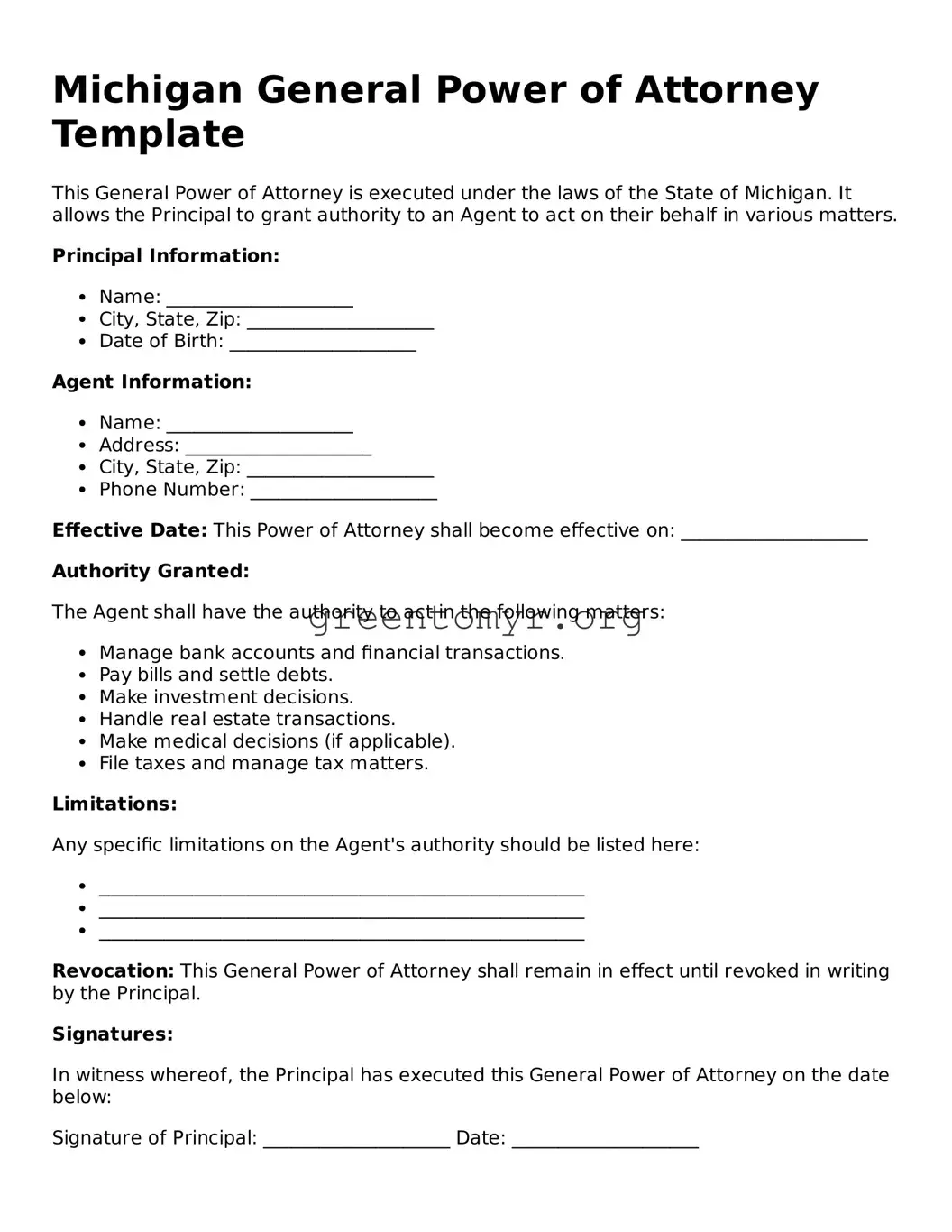Michigan General Power of Attorney Template
This General Power of Attorney is executed under the laws of the State of Michigan. It allows the Principal to grant authority to an Agent to act on their behalf in various matters.
Principal Information:
- Name: ____________________
- City, State, Zip: ____________________
- Date of Birth: ____________________
Agent Information:
- Name: ____________________
- Address: ____________________
- City, State, Zip: ____________________
- Phone Number: ____________________
Effective Date: This Power of Attorney shall become effective on: ____________________
Authority Granted:
The Agent shall have the authority to act in the following matters:
- Manage bank accounts and financial transactions.
- Pay bills and settle debts.
- Make investment decisions.
- Handle real estate transactions.
- Make medical decisions (if applicable).
- File taxes and manage tax matters.
Limitations:
Any specific limitations on the Agent's authority should be listed here:
- ____________________________________________________
- ____________________________________________________
- ____________________________________________________
Revocation: This General Power of Attorney shall remain in effect until revoked in writing by the Principal.
Signatures:
In witness whereof, the Principal has executed this General Power of Attorney on the date below:
Signature of Principal: ____________________ Date: ____________________
Witness Signature: ____________________ Date: ____________________
Witness Signature: ____________________ Date: ____________________
